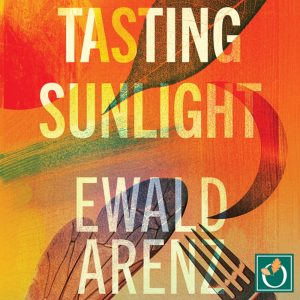Toolkits

March, 2023
Tasting SunlightEwald Arenz
Synopsis
Teenager Sally has just run away from a clinic where she was to be treated for anorexia. She's furious with everything and everyone, and wants to be left in peace. Liss is in her forties, living alone on a large farm that she runs single-handedly. She has little contact with the outside world, and no need for other people. From their first meeting, Sally realises that Liss isn't like other adults; she expects nothing of Sally and simply accepts who she is, offering her a bed for the night with no questions asked. That night becomes weeks and then months, as an unlikely friendship develops and these two damaged women slowly open up - connecting to each other, reconnecting with themselves, and facing the darkness in their pasts through their shared work on the land.
About Ewald Arenz
Ewald Arenz was born in Nuremberg in 1965. He currently lives near Fürth with his family and works in Nuremberg, as a teacher at a secondary school. His novels and plays have received many awards, with Tasting Sunlight being the first of his works to be translated in English.
An interview with Ewald Arenz
What encouraged you to turn your hand to writing fiction?
At a very early age – around 15 – not far from Sally’s age – I had an urgent feeling that I was a genius and had to write. The genius thought has worn off a bit but writing fiction has been an essential part of my life for more than 30 years now. I like to tell stories.
Is there a book or author that has inspired you the most?
I’d say there are dozens of them. Since I studied English and American literature my way of storytelling certainly was influenced by authors from the Brontës over Shaw to Douglas Adams. But there are many German speaking writers, too, such as Erich Kästner, Robert Musil or my great colleague Mariana Leky.
What inspired the story behind Tasting Sunlight?
I wanted to write a story about the healing power of nature. And – as I am a school teacher too – I have met anorexic girls whom I could not help that much that I wanted to. On the other hand, some of them were fascinating characters; intelligent, powerful, and even witty sometimes. So, these seem to have had influence on my Sally.
Introduce us to Sally.
She is fed up with people telling her what to do. She is curious, hungry for an essence of life that her parents cannot give her. They mean well but in a cool, intellectual way. What Sally needs is real warmth. She does not know yet but she needs to get some real work done. With her hands. She needs to feel her body (and her strength) in a very different way from sports.
What’s your favourite quality about her?
I love her straightforwardness. Her fury and her powerful will to just go a different way.
Tell us about her relationship with Liss.
Liss is exactly what her parents are not. She lets her be, for a start. But on the other hand, she challenges her in a way she hasn’t been challenged before. Liss has a secret and would not speak about it to Sally. But while Liss helps her find ‘home’ in a way…there is a point in the book when this starts to turn. And then it is Sally who begins to help Liss find her way back into life again. They develop a deep, loving friendship.
The book explores meaningful themes of friendship, love and acceptance among others. Do you feel readers are gravitating towards these themes more in the current climate?
I definitely agree. Not only because there is war going on. Friendship really is a previous gift. We need that more than ever.
You’re also a playwright. How does the experience compare to writing a novel?
That is a completely different form of writing. Although writing dialogue is something I like in both genres. Writing for the stage means that you have to give up your story at a point. You hand it over to the director and then all the work is up to them. One has to be ready to share. Writing novels is a rather lonely kind of work. But then it is completely your own world.
How important is it that your book will be available in audio as well as traditional formats?
As I’ve already mentioned I like to tell stories. All my novels must also be able to be listened to, to actually be taken in through the spoken word. That is why I like to read my stories to an audience and love them to be read by professional speakers.
Author Video Clip
Recommended Listens after Tasting Sunlight
More literary fiction with a cause
Everything Happens For A Reason by Katie Allen
No Honour by Awais Khan
There’s Only One Danny Garvey by David F. Ross
This Is How We Are Human by Louise Beech
Turbulent Wake by Paul E. Hardisty
